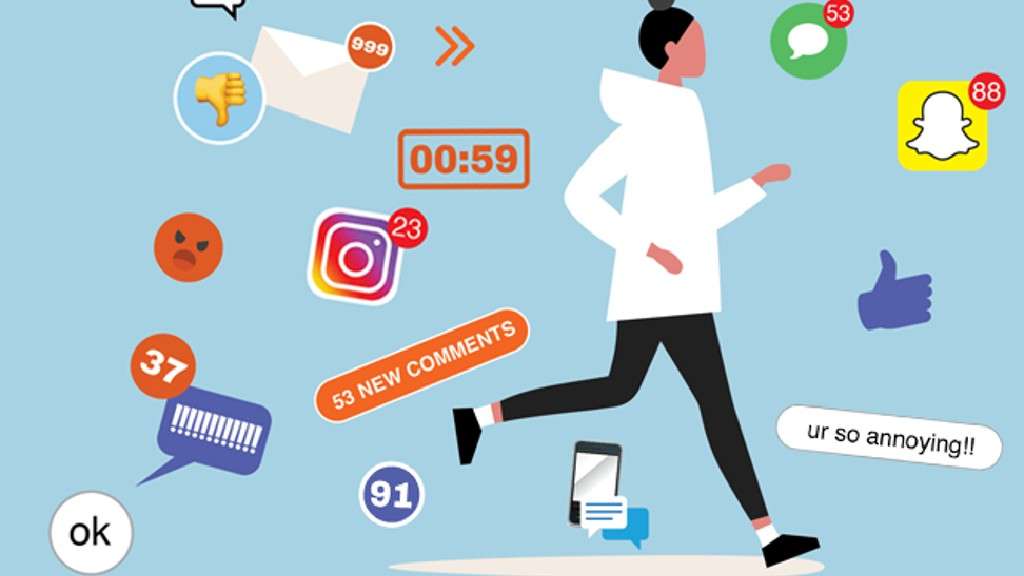Decoding the Digital Landscape
How social media affects mental health? In our digitally interconnected world, the influence of social media on mental health is a topic garnering significant attention. Exploring the complexities of this relationship unveils a nuanced understanding of the effects on our well-being.
Designer Insights
Spritely, the visionary designer behind this exploration, brings a unique perspective to the discourse. With a commitment to blending aesthetics and functionality, Spritely’s insights guide us through the intricate interplay between social media and mental health.
Navigating the Positive Aspects
Contrary to common narratives, social media isn’t solely a culprit; it also offers positive facets. Connecting with like-minded individuals, fostering communities, and accessing valuable resources contribute to a sense of belonging and support.
Unveiling the Challenges
However, challenges abound. Constant exposure to curated lifestyles, unrealistic standards, and the relentless pursuit of validation can contribute to feelings of inadequacy and negatively impact mental well-being.
Empowerment through Awareness
Knowledge is empowerment. By understanding the potential impact of social media on mental health, users can navigate these platforms consciously, fostering a healthier online experience.

Strategies for a Balanced Approach
Balancing social media use is key. Establishing digital boundaries, curating a positive feed, and taking regular breaks contribute to a mindful and intentional engagement with these powerful platforms.
Impact on Vulnerable Demographics
Certain demographics, such as adolescents and individuals with pre-existing mental health conditions, may be more vulnerable. Recognizing these vulnerabilities prompts a collective responsibility to create safer digital spaces.
Moving Towards a Holistic Digital Experience
In conclusion, understanding how social media affects mental health is a crucial step toward fostering a digital landscape that prioritizes well-being. By embracing awareness, implementing mindful practices, and advocating for positive change, we can collectively shape a healthier digital future.
Conclusion: How Social Media Affects Mental Health?
In conclusion, social media has become an integral part of our daily lives, profoundly influencing how we communicate, interact, and perceive ourselves and others. However, amidst the allure of likes, shares, and followers, lies a darker side to social media one that significantly impacts our mental health. From fostering feelings of inadequacy to exacerbating anxiety and depression, the negative effects of social media on mental well-being are undeniable. By acknowledging these challenges, promoting responsible social media usage, and prioritizing mental health, we can begin to mitigate the detrimental effects of social media and cultivate a healthier digital environment for ourselves and future generations.
FAQs
- How does social media affect mental health? Social media can negatively impact mental health by fostering feelings of inadequacy, perpetuating comparison culture, and exacerbating anxiety and depression through factors such as cyberbullying, addiction, and sleep disturbances.
- Can social media addiction be treated? Yes, social media addiction can be treated through a combination of behavioral interventions, such as setting boundaries around screen time, seeking support from mental health professionals, and developing healthier coping strategies.
- What are some signs that social media use is impacting mental health? Signs that social media use is impacting mental health include increased feelings of anxiety or depression, changes in sleep patterns, withdrawal from real-world relationships, and obsessive thoughts or behaviors related to social media.
- Are there any positive effects of social media on mental health? While social media is often associated with negative mental health outcomes, it can also facilitate connections with friends and family, provide access to valuable support networks and resources, and offer a platform for self-expression and creativity.
- How can individuals protect their mental health while using social media? Individuals can protect their mental health while using social media by setting boundaries around screen time, cultivating real-world relationships, practicing self-care, seeking support from mental health professionals, and being mindful of their online interactions and behaviors.




